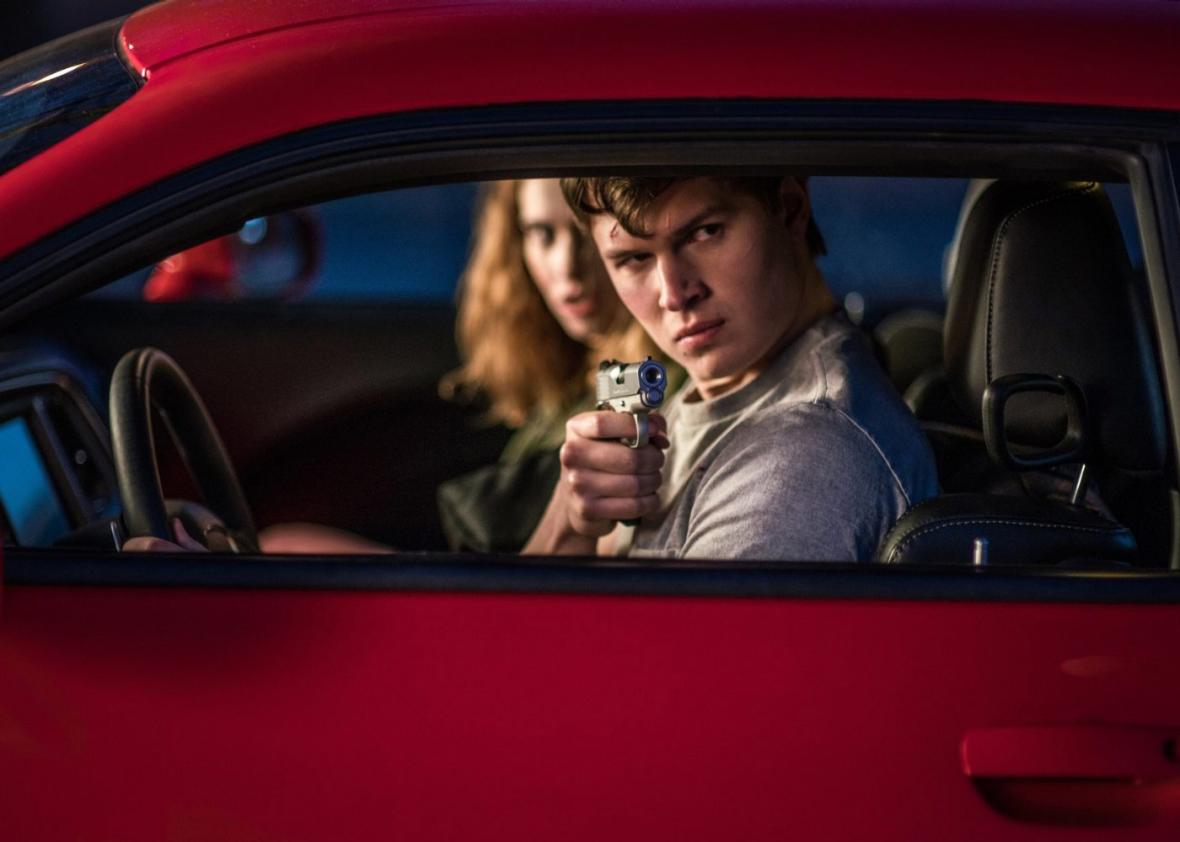Baby Driver is not your average car or bank heist movie. In fact, it would be a stretch to consider it either of those things because although the plot revolves around robbing banks and driving away, the movie is so much more than that. It deals with a broad range of topics, from deafness to culture as a means of survival–if it weren’t labelled an “action” film, it would be up for a whole host of Oscars and have a good case for winning them.
Unlike most films dedicated to fast cars and grizzled criminals, is not dark, gloomy, nor a blur of speed. The movie is still nonstop, well choreographed, and has spurts of violence–but, like most Edgar Wright films, scenes are well-lit, vibrant, and show all their punches. Likewise, there is plenty of violence in the film but it isn’t brushed over. We see our main character, Baby, constantly confront his own role in the violence and destruction perpetuated by his coworkers–violence that is often directed at innocent bystanders, people in the wrong place at the wrong time. Baby Driver shows us not only how people are implicit in the violence around them, but also how that violence changes them (for better or worse) and creates a self-perpetuating cycle.

Of course, the movie isn’t always gloom and doom–more often than not, this film is hilarious. And the best part about this film is the soundtrack and how that music is incorporated into the plot of the movie. Lots of films using funky older songs to make their movies seem better, but music is not only background here. The music is essential to the film, as Baby uses music to drive. He needs a soundtrack to get away. Usually, you find a song to suit a scene, but here the scenes (even characters’ names) were written with specific songs in mind. So if you like action, humor, and a good soundtracks, Baby Driver will probably be the best movie you see all year.


